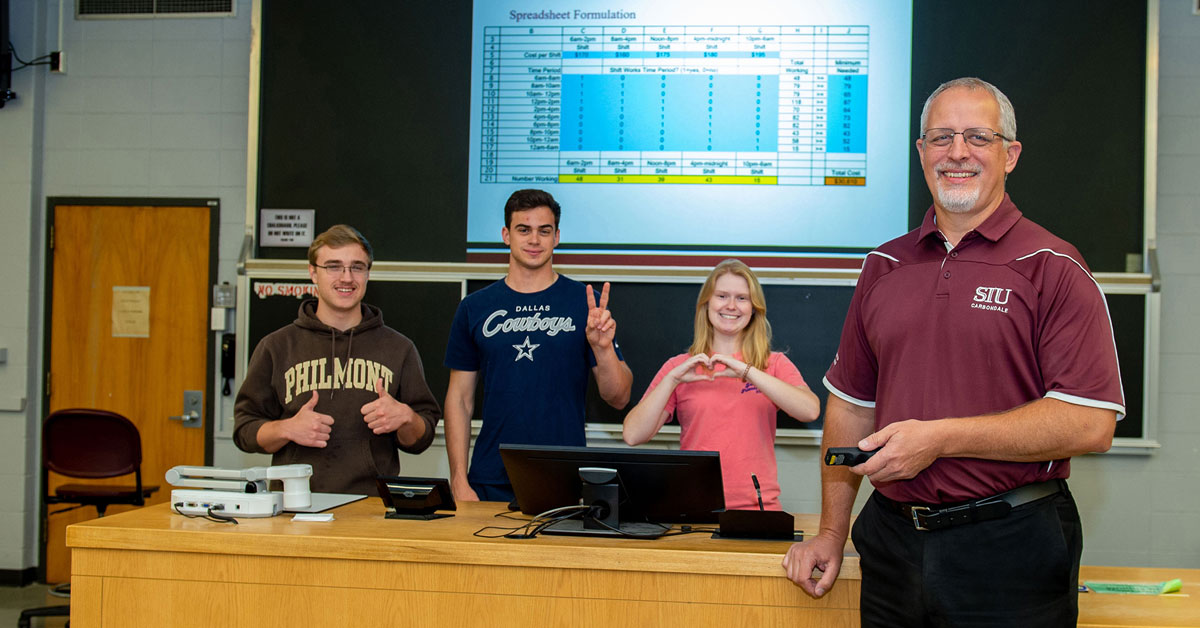
File photo
October 27, 2022
Media Advisory: SIU prof can discuss possible rail strike, other supply chain issues
CARBONDALE, Ill. — Gregory D. DeYong, a Southern Illinois University Carbondale associate professor of operations management, is available for interviews about the already precarious supply chain and the possible impact after a second railroad union rejected a deal with the major U.S. freight railroads, increasing the likelihood of a rail strike next month.
The Brotherhood of Railroad Signalmen this week voted against the contract, and the Brotherhood of Maintenance of Way Employees Division union, which represents track maintenance workers, refused it earlier this month. The two biggest unions, which represent conductors and engineers, won’t announce their votes until mid-November. Six smaller unions have approved deals with the railroads, but unless all 12 rail unions, representing more than 115,000 workers nationwide, ratify the contracts there is still a chance a strike may result. A freight railroad strike would be a huge blow to the nation’s supply chain; according to the Association of American Railroads (AAR), it would idle about 7,000 freight trains a day run by CSX, Union Pacific, BNSF, Norfolk Southern, Kansas City Southern and others.
“Nothing will happen before the Nov. 19 negotiation deadline, but the odds are a bit higher now for a strike,” DeYong said.
DeYong has personal experience as well as professional knowledge in supply chain management. Before becoming a faculty member, he worked as an import/export manager where he was responsible for importing about $100 million in products annually. DeYong is currently working to establish a Center for Supply Chain Management and Logistics within the College of Business and Analytics to encourage research and teaching in this important area. DeYong can be reached at gdeyong@business.siu.edu.
The U.S. economy would lose about $2 billion every day trains don’t move, according to the AAR. As harvest season is in full swing, one-third of U.S. grain exports travel by rail, so a disruption could worsen food shortages worldwide.
In addition, experts note:
- About one-half of all U.S. fertilizer travels by trains, and if it can’t reach farmers or if drives up costs, that escalates food costs for consumers.
- More than 75% of vehicles get from factories to dealerships by train.
- One rail car can transport up to 2,000 UPS packages, including holiday gifts.
- An additional 467,000 long-haul trucks per day would be needed to help compensate for what is transported via rail.
DeYong can also speak about other issues threatening the supply chain, including prolonged negotiations for a labor contract covering more than 22,000 port workers at 29 Pacific Coast sites stretching from California to Washington State, which handle about 40% of the nation’s imports. Although there haven’t been work interruptions at this time, some shippers have routed cargo elsewhere as a precaution.
“I am very familiar with delays and labor disputes at that port,” DeYong said, noting that when he worked in the industry much of the product he handled came through the port at Long Beach, California.
In addition, other issues affecting the supply chain include weather such as the drought lowering levels in the Mississippi River, diseases such as the avian flu and the war in Ukraine.
